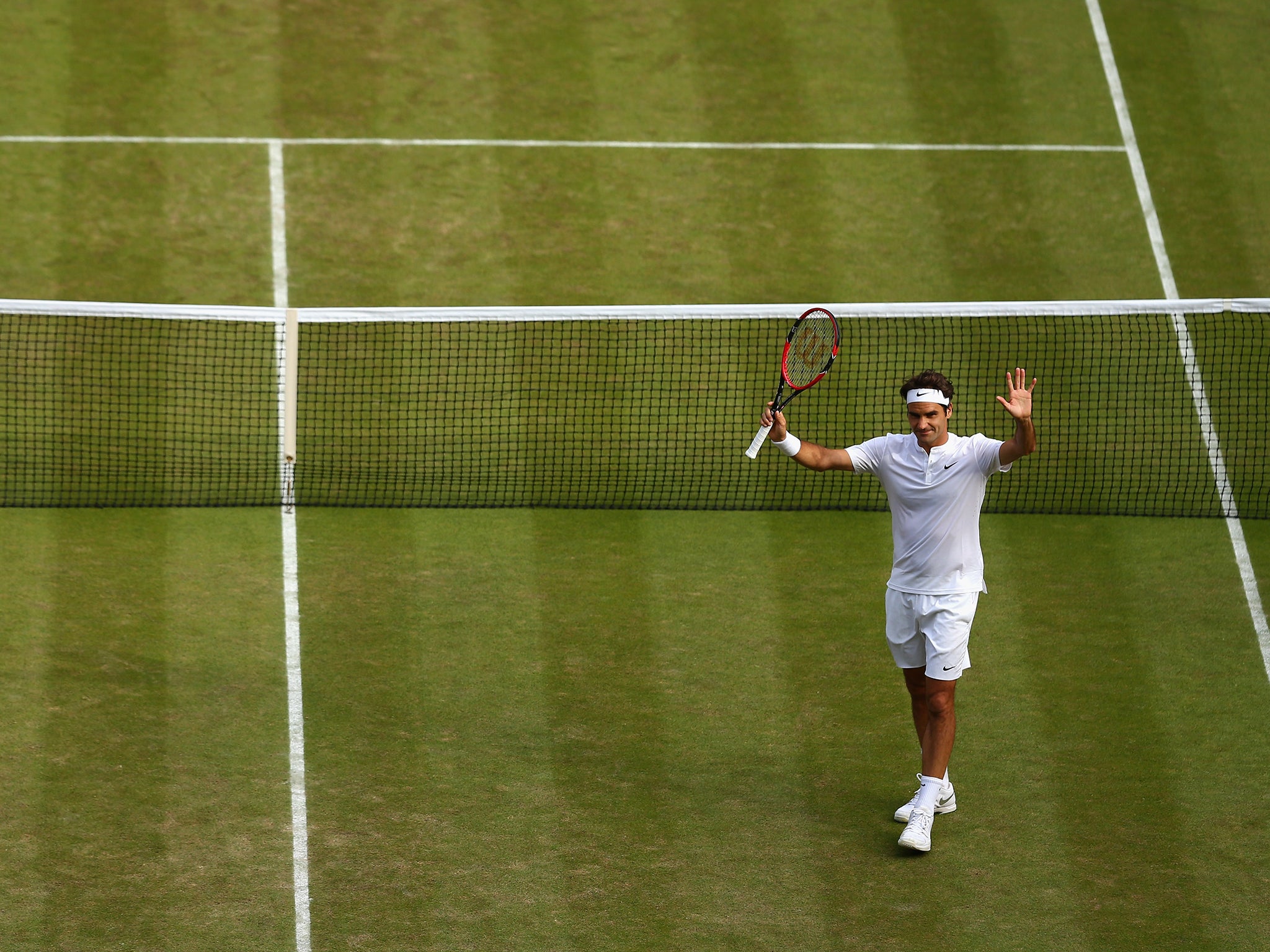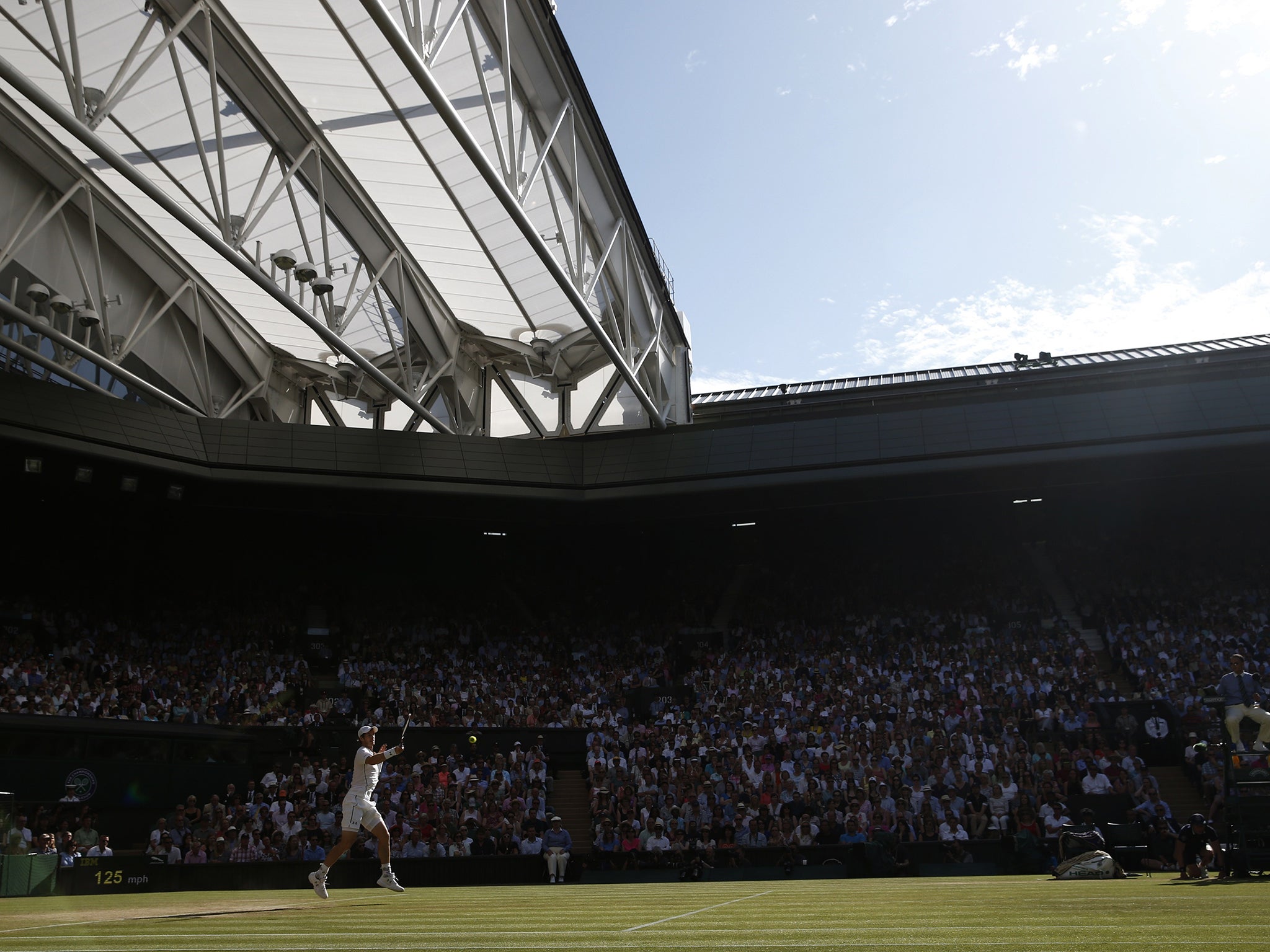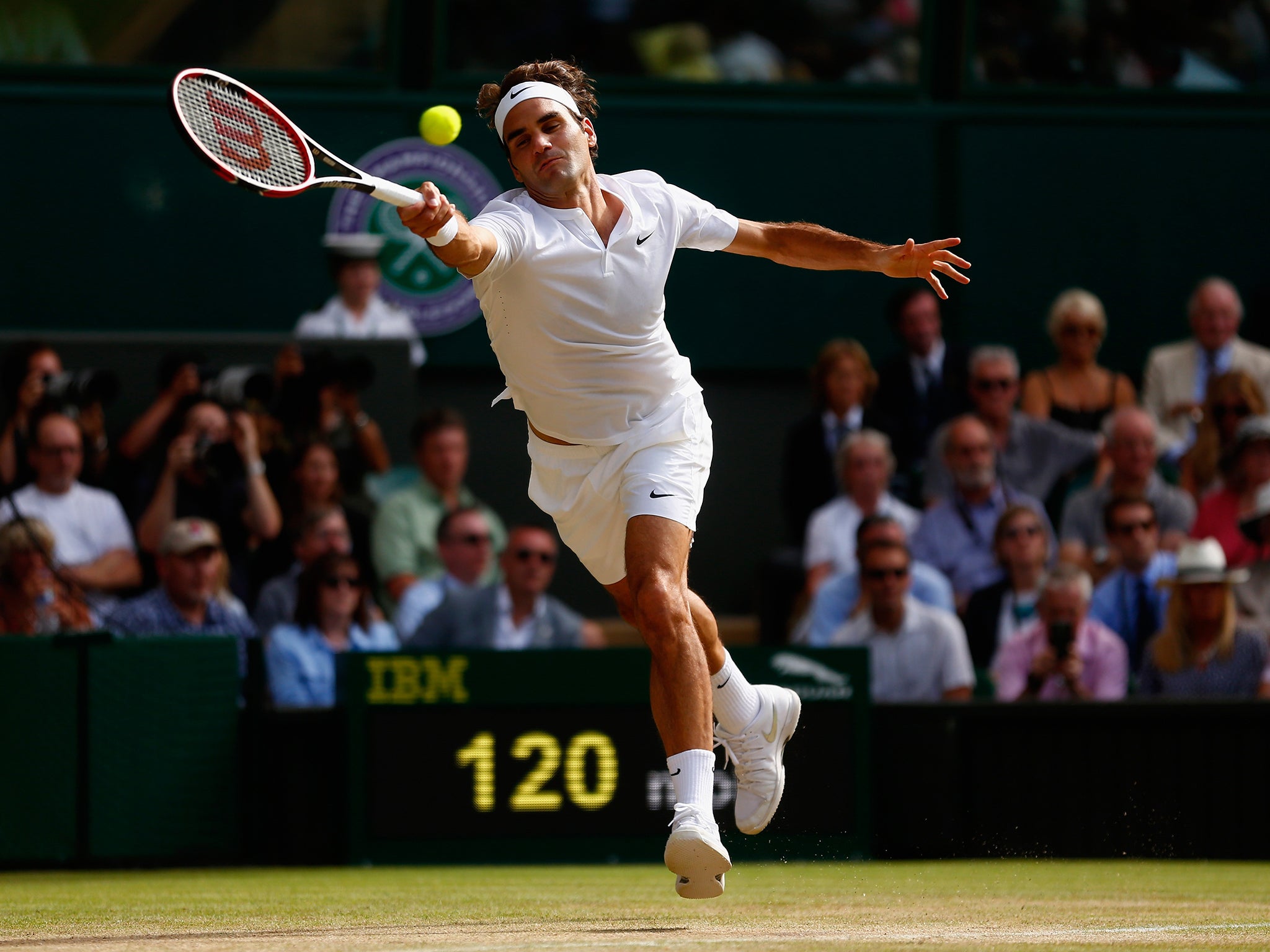Andy Murray falls to brilliant Roger Federer who rolls back the years to set up Wimbledon final against Novak Djokovic
Federer won in straight sets 7-5 7-5 6-4

Your support helps us to tell the story
From reproductive rights to climate change to Big Tech, The Independent is on the ground when the story is developing. Whether it's investigating the financials of Elon Musk's pro-Trump PAC or producing our latest documentary, 'The A Word', which shines a light on the American women fighting for reproductive rights, we know how important it is to parse out the facts from the messaging.
At such a critical moment in US history, we need reporters on the ground. Your donation allows us to keep sending journalists to speak to both sides of the story.
The Independent is trusted by Americans across the entire political spectrum. And unlike many other quality news outlets, we choose not to lock Americans out of our reporting and analysis with paywalls. We believe quality journalism should be available to everyone, paid for by those who can afford it.
Your support makes all the difference.Defeat is never easy to take, especially in a semi-final, but Andy Murray should take comfort from the fact that he was beaten here last night by a stunning display from the greatest player in history. For years now we have been wondering whether we have already seen the best of Roger Federer, but his 7-5, 7-5, 6-4 victory over Murray was surely as good as almost any performance from his remarkable career.
In the last five years Federer has won only one Grand Slam title – when he beat Murray in the final here three summers ago – but the 33-year-old Swiss may be on the brink of perhaps the most extraordinary victory of his life. When he faces Novak Djokovic for the second year in succession in the final here tomorrow, Federer will attempt to become the first player ever to win the men’s singles title at the All England Club eight times.
At 33 years and 338 days Federer will be the oldest player to appear in a Wimbledon final since Ken Rosewall finished runner-up in 1974 at 39 years and 246 days. Federer will also extend his own record by playing in his 26th Grand Slam final.
It was a brilliant all-round display, but Federer’s serving in particular was breath-taking. Murray said afterwards that the Swiss had never served better against him in their 24 meetings.
Federer put 76 per cent of his first serves in court – high by any player’s standards – and won 84 per cent of the points when those first serves found the target. In the second set he put 19 first serves in the court and won the point on every one of them. Federer hit 20 aces to Murray’s 12.

Murray might have guessed he would be facing a serving masterclass: until his serve was broken by Gilles Simon in the quarter-finals Federer had held serve for a record 116 games in succession.
The serve has often been one of the most underrated features of Federer’s game. It might lack the power of some of the biggest hitters, but it can be almost impossible to read. He hits his spots with extraordinary accuracy, on both first and second serves. His first serve reaped a reward throughout the match, while his second serve was relentlessly accurate and consistent.
Murray’s first serve speed was actually faster than Federer’s – 119mph to 118mph –but the more telling statistic was their second serve speeds. Federer averaged 100mph and Murray 89mph.
Federer piled pressure on Murray’s second serve throughout the match, but the Scot was unable to reciprocate. Federer had 10 break points and converted three of them. Murray’s only break point came in the opening game – and Federer saved it.

In all other respects, nevertheless, Murray had every reason to be pleased with his performance. He brought the best out of Federer with some excellent defence, hit some splendid winning passes and lobs when the Swiss charged forward and remained competitive throughout. Sometimes your best is just not good enough.
On a warm afternoon under a blue sky, with a gentle breeze blowing around Centre Court, the conditions were almost perfect. There was loud support for both men. Murray took every opportunity to pump up the crowd and they responded in appropriate fashion to create a raucous atmosphere.
Murray will no doubt regret not converting his only break point in the opening game, which he had created with a thumping backhand winner down the line. Federer saved it with an unreturned serve. From that moment onwards both men held their serves with something to spare until Murray served at 5-6.
At 15-15 Murray put a loose forehand in the net and on the next point Federer ran round a weak second serve to hit a huge inside-out forehand cross-court winner. Murray saved the first set point with a splendid forehand pass down the line, but on the second Federer smacked a crunching backhand to Murray’s feet which the Scot was unable to pick up.
The pressure on Murray’s serve grew in the second set. In the fourth game Federer created another break point by running round a second serve to hit a forehand return winner, but this time Murray held on.
Greater drama was to come when Murray served at 4-5. The Scot went 0-40 down, having made two forehand errors, saved three set points by levelling to deuce and then saved two more before finally winning the game with an ace after seven deuces and nearly 15 minutes. By now Murray was fist-pumping after every winning point, but the pressure did not go away.
When Murray served at 5-6, the Scot again stared down the barrel. A stunning backhand winner down the line took Federer to 15-30 and two points later a loose backhand into the net by Murray handed the Swiss his sixth set point. Murray defended bravely under relentless attack, but a typically bold forehand approach enabled Federer to put away his subsequent overhead with ease.
Murray held serve more easily in the third set until he served at 4-5. Murray went 0-15 down after netting a backhand and 0-30 down when Federer hit one of the shots of the match. Driven out wide by an excellent approach from Murray, Federer flicked a breath-taking backhand cross-court and beyond Murray’s reach.

Murray recovered to 30-30 only for Federer to create match point with a superb backhand return. He wasted no time completing victory after two hours and seven minutes as Murray missed a forehand on the next point.
While Federer goes into a repeat of last year’s final – a fitting finale to the tournament pitting the world’s two best players against each other – Murray will lick his wounds and prepare for another major challenge next weekend when Britain take on France in the quarter-finals of the Davis Cup at Queen’s Club.
At least the French will also have a player needing to put behind him the pain of semi-final defeat here, though Richard Gasquet’s disappointment is unlikely to be on the same level as Murray’s. The Scot considers this to be his best chance of winning another Grand Slam title and by the time he returns here next year he will be 29.
Join our commenting forum
Join thought-provoking conversations, follow other Independent readers and see their replies
Comments